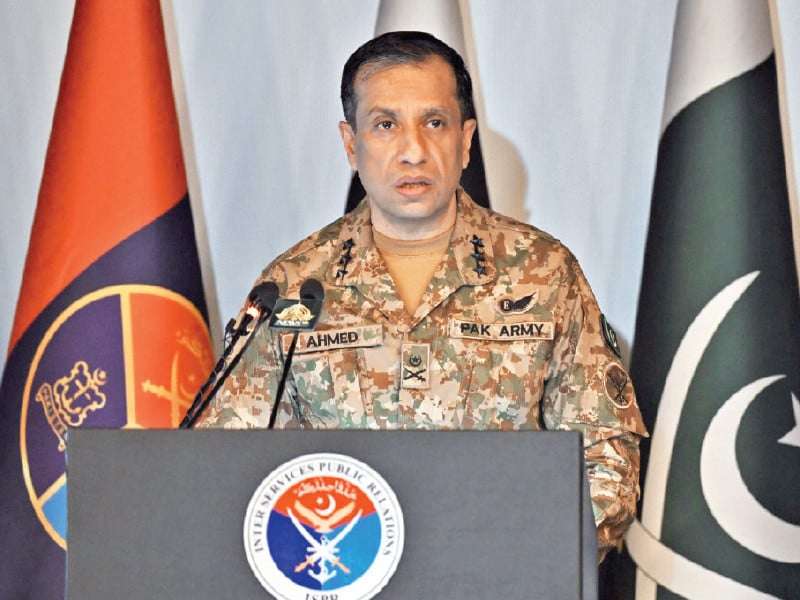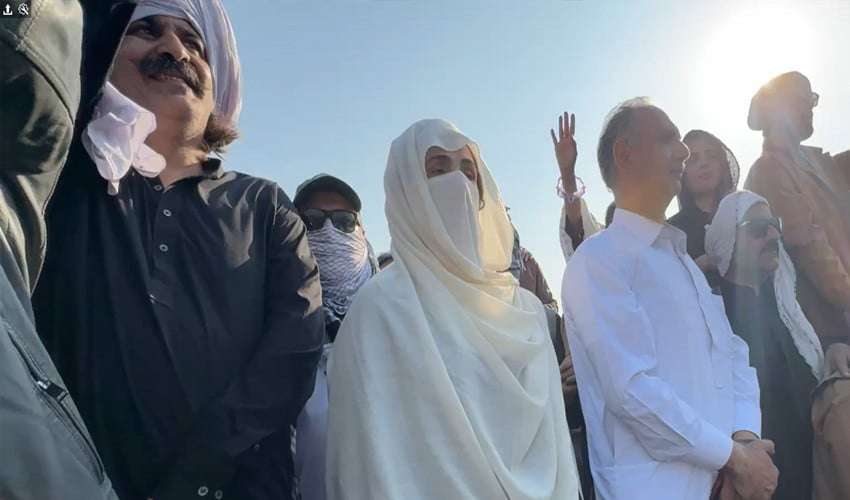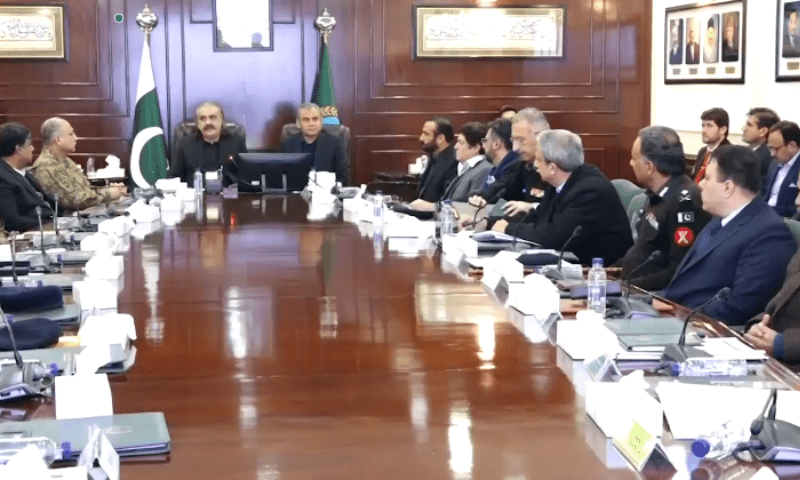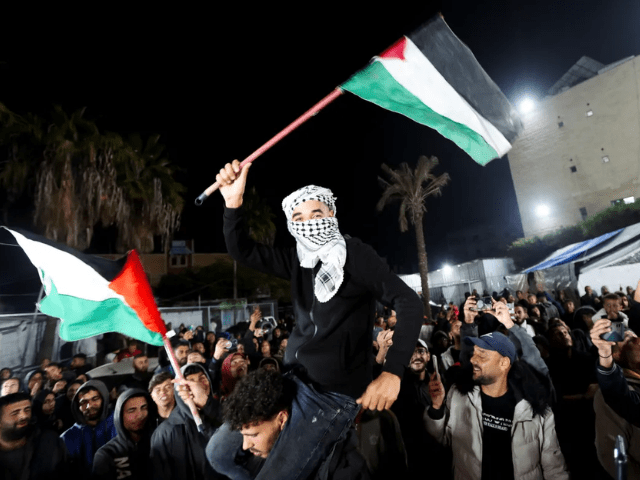In a recent press conference in Rawalpindi, Director General of Inter-Services Public Relations (ISPR) Lieutenant General Ahmed Sharif Chaudhry addressed a range of pressing national security and political concerns. His comments on various issues, including the violent protests of May 9, cross-border terrorism, and the military’s role in ensuring the nation’s stability, have generated significant discussions. This article provides a detailed overview of his statements and the military’s commitment to ensuring Pakistan’s long-term security and stability.
DG ISPR’s Address on the May 9 Protests and Accountability
One of the central issues addressed by DG ISPR was the violent protests that occurred on May 9, 2024, which resulted in significant public unrest. General Chaudhry emphasized the accountability process, stating that those responsible for the planning of these protests would be held accountable through legal proceedings. He made it clear that the military would continue its efforts until all those involved in orchestrating and inciting violence on that day are brought to justice.
Accountability for Violence
General Chaudhry reaffirmed the military’s commitment to ensuring that no one is above the law. He stated, “We will not stop until all the planners behind the May 9 incidents are brought to justice.” His remarks signal the military’s resolve to prevent political instability from undermining Pakistan’s security.
The DG ISPR also reiterated that despite the violent protests, Pakistan’s military respects all political parties and their leadership. However, he asserted that no political leader’s desire for power could outweigh the interests of the nation. He stressed that national unity and the well-being of Pakistan must always come before any political ambitions.
Importance of Dialogue Among Political Parties
In a positive note, the DG ISPR welcomed the idea of dialogue among political factions. He encouraged political leaders to resolve their differences through discussions rather than through violent protests or unrest. Chaudhry’s remarks echoed the military’s stance on encouraging peaceful solutions to political conflicts, showing a commitment to facilitating a cooperative environment where leaders can engage in constructive dialogues for the benefit of the country.
Encouraging Political Dialogue
“It is encouraging that politicians sit together and solve their problems through conversation,” Chaudhry remarked. This comment reflects the military’s desire for peaceful and lawful political solutions, which would ultimately benefit Pakistan’s stability and progress.
Pakistan’s Counter-Terrorism Efforts in 2024
One of the most pressing issues in Pakistan in 2024 has been the growing threat posed by terrorism, particularly in Balochistan and Khyber Pakhtunkhwa (KP). DG ISPR provided an update on the military’s counter-terrorism operations, emphasizing the ongoing sacrifices made by security forces in combatting terrorist activities.
Progress in Counter-Terrorism Operations
According to General Chaudhry, in 2024 alone, the Pakistan military carried out 59,775 counter-terrorism operations. These efforts led to the elimination of 925 terrorists, marking a significant milestone in the country’s battle against terrorism. Among those eliminated were key members of notorious groups such as the Khawarij.
Chaudhry further revealed that 73 high-value targets, including the leaders of terrorist organizations, were neutralized in these operations. This effort underscores the military’s commitment to eliminating terrorist groups that threaten the safety and security of Pakistan’s citizens.
Sacrifices of the Pakistan Military
The military’s counter-terrorism efforts came at a significant cost. General Chaudhry reported that 383 officers and soldiers had lost their lives while fighting against terrorism in 2024. This statistic highlights the deep sacrifices made by Pakistan’s security forces in ensuring the country’s safety.
Cross-Border Terrorism and Safe Havens in Afghanistan
A critical issue raised by DG ISPR during the press conference was the ongoing threat posed by terrorist groups operating from Afghanistan. Despite efforts by Pakistan to engage with the Afghan government, terrorist organizations like the Tehreek-e-Taliban Pakistan (TTP) continue to exploit Afghan soil to launch attacks on Pakistan’s territory.
Terrorists Exploiting Afghan Soil
Chaudhry asserted that terrorism in Pakistan is often linked to safe havens in Afghanistan. He highlighted that Pakistan had made significant efforts to engage with the Afghan government, but the presence of terrorist groups on Afghan soil remained a serious concern. “All evidence related to terrorism can be traced back to the safe havens enjoyed by terrorists in Afghanistan,” Chaudhry stated, making it clear that the military would continue its fight against terrorism, regardless of where these groups operate.
Pakistan’s Efforts to Promote Peace in Afghanistan
Despite the challenges, Pakistan has continued to advocate for peace and stability in Afghanistan. Chaudhry praised Pakistan’s long-standing efforts to maintain peace in Afghanistan, citing the country’s hospitality toward Afghan refugees over the years. “Pakistan has wholeheartedly tried for peacekeeping in Afghanistan and has played the most important role in its stability,” he emphasized.
Repatriation of Afghan Nationals and Border Management
In line with Pakistan’s efforts to curb illegal border activities, DG ISPR provided an update on the repatriation of Afghan nationals. Since September 2023, over 815,000 Afghan citizens have returned to Afghanistan, with Pakistan continuing to enforce the repatriation process under government directives.
Efforts to Clear Border Minefields
DG ISPR also provided information about the Western Border Management Regime, highlighting the significant progress made in clearing minefields in the tribal districts. According to Chaudhry, 72% of the tribal areas have been cleared of mines, contributing to improved border security.
Crackdown on Smuggling and Other Illegal Activities
In addition to the ongoing efforts to curb terrorism, Pakistan’s military has been involved in crackdowns on smuggling, drug trafficking, electricity theft, and hoarding. General Chaudhry reported that these efforts had led to a noticeable reduction in illegal activities across the country.
Accountability for the May 9 Unrest and Military Courts
In a continuation of the accountability process for the May 9 protests, the military courts have recently issued verdicts holding 60 individuals responsible for their involvement in the unrest. Earlier, 85 civilians were sentenced for their participation in the violent protests, with sentences ranging from two to ten years.
Accountability Through Military Courts
General Chaudhry reaffirmed the military’s commitment to ensuring that justice is served for the events that transpired on May 9, stating that the military would continue to hold individuals accountable through legal and judicial proceedings.
Conclusion: Commitment to National Security and Stability
In conclusion, DG ISPR Lieutenant General Ahmed Sharif Chaudhry’s statements reflect Pakistan’s ongoing efforts to combat terrorism, maintain political stability, and ensure national security. The military’s commitment to upholding the nation’s interests above individual political ambitions is clear, as is its determination to address both internal and external security threats.
As Pakistan continues to face a complex security environment, the military remains a key player in ensuring the safety of its citizens and the preservation of the country’s sovereignty.
FAQs
1. What is the role of the ISPR in Pakistan’s national security?
The ISPR plays a critical role in communicating the military’s actions, policies, and strategies to the public. It ensures transparency and provides updates on military operations, counter-terrorism efforts, and national security concerns.
2. How does Pakistan address cross-border terrorism?
Pakistan addresses cross-border terrorism by engaging with neighboring countries, such as Afghanistan, and taking military action against terrorist groups that exploit foreign soil for attacks.
3. What is the significance of the May 9 protests in Pakistan’s political landscape?
The May 9 protests were a major event in Pakistan’s political history, resulting in violence and unrest. The military has committed to holding those responsible accountable through legal means, ensuring national interests are prioritized.
4. How is Pakistan managing its border security?
Pakistan is actively managing its border security by clearing minefields in tribal areas, conducting crackdowns on illegal activities like smuggling, and ensuring the repatriation of illegal Afghan nationals.
5. What is the military’s stance on political dialogue in Pakistan?
The military encourages political dialogue and believes that political differences should be resolved through peaceful conversations rather than violent protests. The military’s stance is one of supporting national unity and the well-being of the country.



